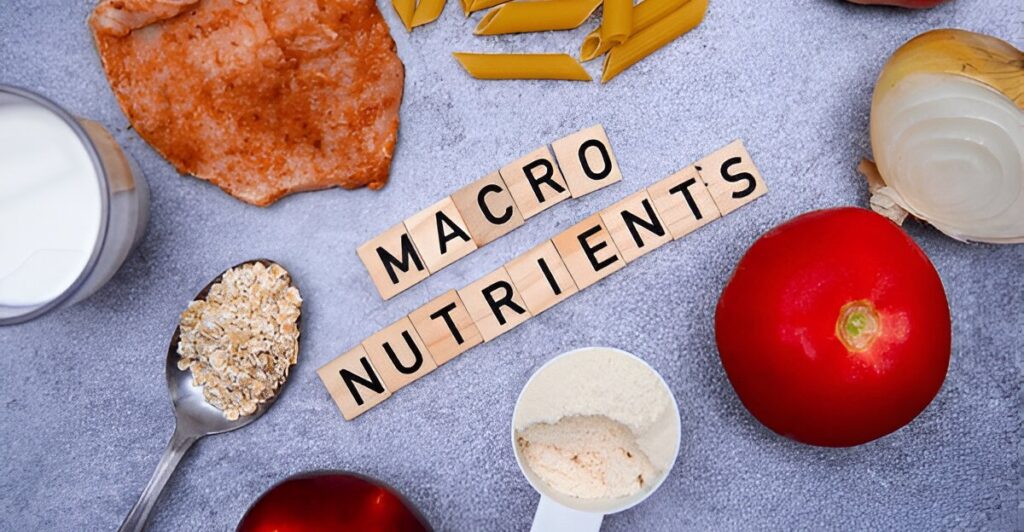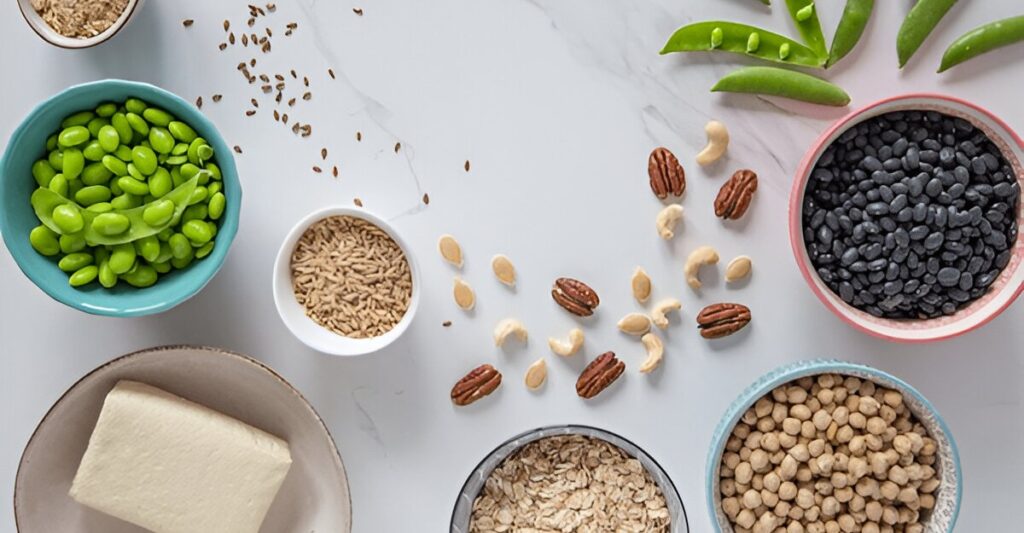Your gut is the cornerstone of your health, influencing digestion, immunity, mood, and even chronic disease risk. When gut health falters—due to poor diet, stress, or dysbiosis—symptoms like bloating, fatigue, and food sensitivities can arise. Advanced gut healing protocols using nutrition offer a powerful way to restore balance, repair the gut lining, and optimize overall wellness. This article explores science-backed dietary strategies to heal your gut and transform your health.
Why Gut Healing Matters
The gut lining acts as a barrier, absorbing nutrients while keeping harmful substances out. When compromised (often called “leaky gut”), it can lead to inflammation, autoimmune issues, and digestive disorders. Advanced gut healing protocols using nutrition focus on:
- Repairing the gut lining to restore barrier function.
- Rebalancing the gut microbiome for healthy bacteria diversity.
- Reducing inflammation to alleviate symptoms.
- Supporting digestion to enhance nutrient absorption.
A 2021 study in Gut Microbes found that targeted nutrition can repair gut permeability and improve microbiome diversity, highlighting the power of diet in gut healing. Let’s dive into the protocols to achieve this.
Core Principles of Gut Healing Protocols
Advanced gut healing protocols using nutrition are built on strategic dietary choices and lifestyle habits. Here are the key components:
1. Remove Trigger Foods
Eliminating foods that irritate the gut or promote inflammation is the first step in healing.
- Common Triggers: Gluten, dairy, refined sugars, processed foods, and artificial additives.
- Why It Works: These foods can damage the gut lining or feed harmful bacteria, per a 2020 study in Nutrients.
- How to Do It: Follow an elimination diet for 4-6 weeks, removing potential triggers and tracking symptoms. Reintroduce foods one at a time to identify sensitivities.
- Example: Swap processed snacks for whole foods like nuts or fruit.
2. Nourish with Gut-Healing Foods
Certain foods provide nutrients to repair the gut lining and reduce inflammation.
- Best Choices:
- Bone Broth: Rich in collagen and amino acids like glutamine, which repair the gut lining, per a 2017 study in Journal of Clinical Gastroenterology.
- Fermented Foods: Yogurt, kefir, sauerkraut, and kimchi provide probiotics to restore microbiome balance.
- Fiber-Rich Foods: Vegetables, fruits, and prebiotics (asparagus, garlic) feed beneficial bacteria.
- Omega-3 Fats: Found in salmon, walnuts, and flaxseeds, these reduce gut inflammation, per a 2019 study in Circulation.
- Tip: Aim for variety to support microbial diversity.
- Example: Sip bone broth as a snack or add sauerkraut to salads.
3. Optimize Nutrient Absorption
A damaged gut struggles to absorb nutrients, so supporting digestion is key.
- Strategies:
- Chew Thoroughly: Enhances enzyme release for better digestion.
- Incorporate Bitter Foods: Dandelion greens or arugula stimulate digestive juices.
- Stay Hydrated: Water supports gut motility and nutrient uptake.
- Why It Works: Improved digestion ensures nutrients reach your cells, per a 2022 study in Frontiers in Nutrition.
- Example: Start meals with a small bitter green salad to kickstart digestion.
4. Support the Microbiome
A diverse, balanced microbiome is essential for gut health.
- Best Choices:
- Probiotics: Found in fermented foods or supplements, they replenish beneficial bacteria.
- Prebiotics: Inulin-rich foods like chicory root or bananas feed good bacteria.
- Polyphenol-Rich Foods: Berries, dark chocolate, and green tea support microbial diversity.
- Why It Works: A 2023 study in Nature Reviews Gastroenterology & Hepatology linked microbiome diversity to reduced gut inflammation.
- Tip: Rotate probiotic sources (e.g., kefir one day, kombucha the next) for variety.
- Example: Snack on berries with a spoonful of yogurt for a microbiome boost.
5. Reduce Inflammation
Chronic inflammation damages the gut and worsens symptoms. Anti-inflammatory foods are a cornerstone of gut healing.
- Best Choices: Turmeric, ginger, leafy greens, and fatty fish.
- Avoid: Sugary foods, trans fats, and excessive alcohol.
- Why It Works: Anti-inflammatory diets lower gut permeability, per a 2021 study in The American Journal of Clinical Nutrition.
- Example: Add turmeric to soups or smoothies with a pinch of black pepper for enhanced absorption.
Supplements for Advanced Gut Healing
While food is the foundation, targeted supplements can enhance advanced gut healing protocols using nutrition. Always consult a healthcare provider before starting:
- L-Glutamine: An amino acid that repairs the gut lining, per a 2019 study in Nutrients. Typical dose: 5-10 grams daily.
- Probiotics: High-potency, multi-strain formulas support microbiome balance. Look for 10-50 billion CFUs.
- Collagen Peptides: Support gut barrier function and tissue repair. Mix into drinks or smoothies.
- Zinc Carnosine: Protects and heals the gut lining, per a 2020 study in Journal of Gastroenterology.
- Digestive Enzymes: Aid nutrient breakdown in those with compromised digestion.
Tip: Choose high-quality, third-party-tested supplements for safety and efficacy.
Sample Gut-Healing Meal Plan
Here’s a one-day meal plan incorporating advanced gut healing protocols using nutrition:
- Breakfast: Smoothie with collagen peptides, kefir, spinach, blueberries, and flaxseeds.
- Snack: Bone broth with a sprinkle of turmeric and ginger.
- Lunch: Grilled salmon with sautéed asparagus, quinoa, and a side of sauerkraut.
- Snack: Sliced apple with almond butter and a handful of walnuts.
- Dinner: Chicken vegetable soup with garlic, kale, and prebiotic-rich leeks.
Tip: Sip herbal teas like peppermint or chamomile to soothe digestion between meals.
Lifestyle Factors to Support Gut Healing
Diet is critical, but these habits amplify advanced gut healing protocols:
- Manage Stress: Chronic stress disrupts the gut-brain axis, increasing permeability. Practice meditation or yoga, per a 2022 study in Brain, Behavior, and Immunity.
- Prioritize Sleep: Aim for 7-9 hours nightly to support gut repair, per a 2019 study in Sleep Medicine.
- Exercise Moderately: Light activities like walking improve gut motility without overtaxing the body.
- Avoid Overuse of Medications: Antibiotics and NSAIDs can harm the gut microbiome. Use only when necessary.
Common Myths About Gut Healing
Let’s debunk some misconceptions:
- Myth 1: Gut Healing Is Quick
Repairing the gut takes weeks to months, depending on damage. Consistency is key. - Myth 2: You Must Avoid All Grains
Gluten-free whole grains like quinoa or rice are gut-friendly for most, unless you have specific sensitivities. - Myth 3: Supplements Are Enough
Supplements support but can’t replace a nutrient-dense, whole-food diet.
Practical Tips for Implementing Gut Healing Protocols
Ready to apply advanced gut healing protocols using nutrition? Try these steps:
- Start with Elimination: Remove trigger foods for 4-6 weeks and track symptoms in a journal.
- Shop Smart: Stock up on gut-healing foods like bone broth, fermented veggies, and prebiotic-rich produce.
- Batch Prep Meals: Prepare bone broth or fermented foods in advance for convenience.
- Monitor Progress: Note changes in bloating, energy, or digestion to gauge improvement.
- Work with a Professional: A functional medicine practitioner or dietitian can personalize your protocol, especially for complex conditions.
The Science Behind Gut Healing Nutrition
Research validates these protocols. A 2023 study in Frontiers in Nutrition found that L-glutamine and probiotics reduced gut permeability in patients with leaky gut. Another study in Nutrients (2021) showed that polyphenol-rich diets increased microbiome diversity, lowering inflammation. By aligning your diet with these findings, you can heal your gut effectively.
Conclusion
Advanced gut healing protocols using nutrition offer a transformative approach to restoring gut health, reducing symptoms, and enhancing overall wellness. By removing trigger foods, nourishing with gut-healing nutrients, supporting the microbiome, and reducing inflammation, you can repair your gut and feel revitalized. Pair these dietary strategies with stress management, sleep, and moderate exercise for optimal results.
Start small—try adding bone broth or fermented foods to your week. With consistency and a science-backed approach, you’ll pave the way for a healthier gut and a thriving body.
Call to Action: Ready to heal your gut? Share your favorite gut-friendly recipe or ask a question in the comments below!


